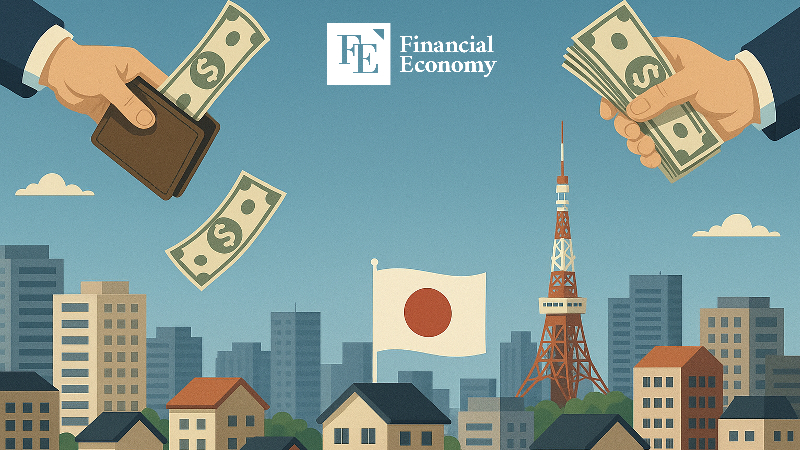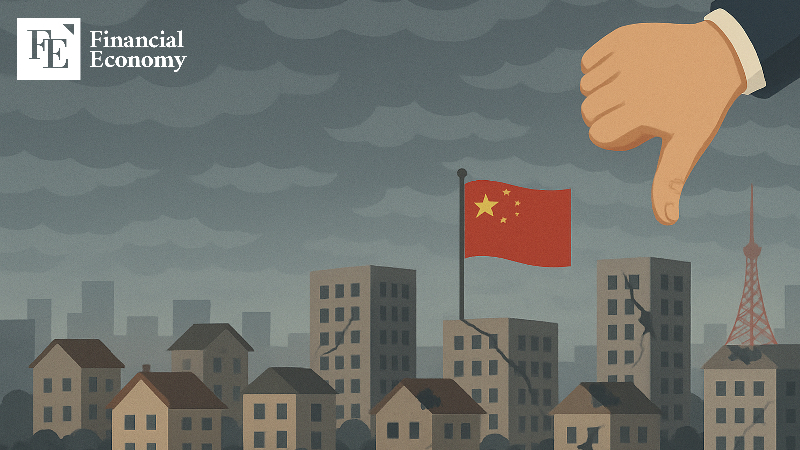With No Future Seen in Chinese Property, Global Capital Pivots to Japan
Input
Modified
“Japan’s Real Estate Market Attracted USD 11.2 Billion in the First Quarter Alone” “Market Recovery, Weak Yen, and Stable Investment Conditions Attract Investors” “China, Unable to Shake Its Property Slump, Left Out in the Cold”

Global investors targeting Asian real estate are shifting their focus away from China and redirecting funds toward Japan. With China’s property slump dragging on, signs of a real estate boom in Japan have triggered a significant shift in investment flows. The focus is particularly on Hong Kong investors—once heavily involved in mainland Chinese real estate—who are now showing clear signs of “changing their allegiance.”
Global Investors Eye Japan’s Real Estate Market
On the 22nd (local time), the South China Morning Post (SCMP) in Hong Kong reported, citing data from global real estate consultancy Colliers, that global investors poured a total of USD 11.2 billion into Japanese real estate in the first quarter of this year. This figure is 6% higher than the five-year average, making Japan the fifth-largest real estate investment destination globally.
According to Colliers, the countries that invested the most capital into the Japanese real estate market were the United States, Singapore, and Hong Kong. Mainland Chinese investors also invested USD 1 billion in Japanese real estate during the same period, more than double the five-year average of USD 428 million.
Experts are particularly focused on the movements of Hong Kong investors. Masahiro Tanikawa, Head of Investment Services at Colliers Japan, analyzed, “Hong Kong investors have traditionally focused on mainland Chinese real estate, but the collapse of China's property market has redirected capital flows toward more stable markets such as Japan and Australia.” He added, “Both Japan and Australia offer deep and liquid multifamily investment markets, which are among the largest in the Asia-Pacific region.”

Slump in China’s Real Estate Market
As noted by Masahiro Tanikawa, China’s real estate market has been mired in a prolonged slump for several years. Since the end of 2020, stringent regulations on property developers—combined with a continuing economic slowdown following the COVID-19 pandemic—have caused the broader market to freeze.
Office vacancy rates in China’s major cities are expected to exceed 20% this year, and office rents are projected to fall by approximately 10% year-on-year. At the beginning of this year, the number of new housing starts in China dropped by around 30% compared to the previous year, while new home prices have declined for 21 consecutive months.
Key indicators reflecting housing supply and demand have also weakened in tandem. According to April economic statistics released by China’s National Bureau of Statistics, real estate development investment from January to April amounted to USD 386 billion, a 10.3% decrease from the same period last year. During the same timeframe, the total sales of newly launched apartments stood at USD 376 billion, down 3.2% year-on-year, with the rate of decline increasing 2.1 percentage points from Q1.
Given the bleak outlook for China’s real estate recovery in the near term, global investors are increasingly pulling out of the local market. U.S.-based BlackRock, the world’s largest asset management company, reportedly sold an office building in China late last year at a loss of over 40%, and in March this year, it sold its final real estate holding in the country, the Trinity Place office tower in Shanghai, completing its exit from the Chinese property market.
Similarly, in January, the Canada Pension Plan Investment Board (CPPIB) sold its 49% stake in four shopping malls located in Shanghai, Suzhou, Chengdu, and Chongqing to China’s Dajia Insurance Group. Meanwhile, Hong Kong’s Parkview Group, a real estate developer, has put its mixed-use shopping complex Fangcaodi, located in central Beijing, up for sale.
Japanese Real Estate Awakens
In contrast, Japan’s property market, long dormant since the burst of its economic bubble, has recently shown noticeable signs of recovery. According to Japan’s Ministry of Land, Infrastructure, Transport and Tourism, as of January 1 this year, the country’s official land prices rose by an average of 2.7% nationwide compared to a year earlier, marking the fourth consecutive year of increases. These land prices are based on the assessed values of 26,000 standard sites nationwide.
Buoyed by recovering property values, transaction demand is also rebounding rapidly. According to Nikkei Asia, real estate transaction volume in Japan is expected to reach approximately USD 3.6 billion this year, the highest in a decade. One of the main drivers of this growth is the large-scale asset sales by Japanese corporations. Pressured by shareholder activism and demands for greater asset efficiency, major Japanese companies are offloading key real estate holdings.
For instance, Seibu Holdings, the parent company of Seibu Railway, plans to sell the Tokyo Garden Terrace Kioicho for approximately USD 2.73 billion to the Blackstone Group. Likewise, Sapporo Holdings, the parent company of the beverage giant Sapporo Breweries, is in the process of selecting a partner to manage assets valued at around USD 2.73 billion. The influx of high-quality assets onto the market is naturally driving up investor demand.
Japan’s low vacancy rates and stable rental income structure are also key advantages. The country’s tenant protection laws and culture of long-term leasing ensure steady cash flows, making it an attractive environment for long-term investors. Compared to neighboring markets like South Korea and China, Japan’s real estate market also offers lower volatility, adding to its appeal. For investors seeking to build a global portfolio, investing in Japanese real estate provides a means to diversify geopolitical risks while pursuing both stability and growth potential.





















